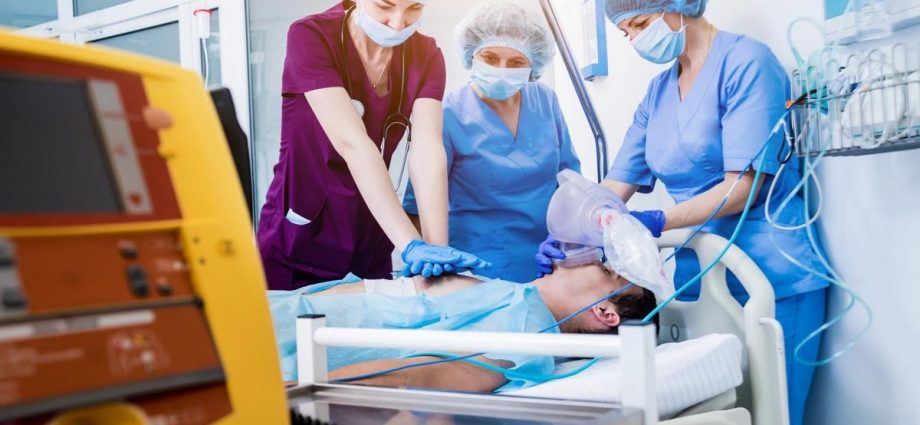MONDAY, Oct. 28, 2024 (HealthDay News) — Every minute spent waiting for a first shock from a defibrillator cuts the odds of surviving cardiac arrest by 6%, a new Dutch study finds.
“Our research shows that every minute of delay in giving the first shock has a major impact,” said study first author says Remy Stieglis, a researcher at Amsterdam University Medical Center (UMC).
“If the first shock was given within six minutes, it was possible in 93% of the cases to stop the heart rhythm disorder ventricular fibrillation (VF) — which causes the cardiac arrest,” he explained in a hospital news release. “If the initial shock was delayed and was only given after more than 16 minutes, for example, this percentage dropped to 75%.”
Steiglis’ team drew on data from an ongoing study in North Holland on cardiac resuscitation. The data focused on 3,723 patients who’d had a cardiac arrest anywhere outside of a hospital and in the presence of a witness.
Getting a defibrillator on scene is crucial to saving lives in these scenarios.
“After a successful shock [defibrillation], VF is terminated and changes to a normal heart rhythm or a completely absent heart rhythm (asystole),” said study co-author Christian van der Werf, a cardiologist and researcher at Amsterdam UMC.
“In our study, a shorter delay to the first shock also led more often to a normal heart rhythm of your own,” he added.
However, patients aren’t always in the clear, because “after a successful shock, VF may reoccur, requiring another shock,” van der Warf noted. “The chance of this also decreased with a shorter time to first shock.”
Currently, authorities are trying to speed time-to-first-shock in The Netherlands by making public automated external defibrillators (AEDs) readily available and training first responders such as police and firefighters in their use.
The goal: To reach people experiencing cardiac arrest within 6 minutes and deliver a potentially lifesaving defibrillator shock.
However, “in 3 out of 4 resuscitations in our study, we did not reach those six minutes,” noted Hans van Schuppen, anaesthesiologist and leader of the ongoing resuscitation study.
The new study was published Oct. 28 in the journal Circulation.
More information
Find out more about cardiac arrest at the American Heart Association.
SOURCE: Amsterdam UMC, news release, Oct. 28, 2024
Copyright © 2026 HealthDay. All rights reserved.

